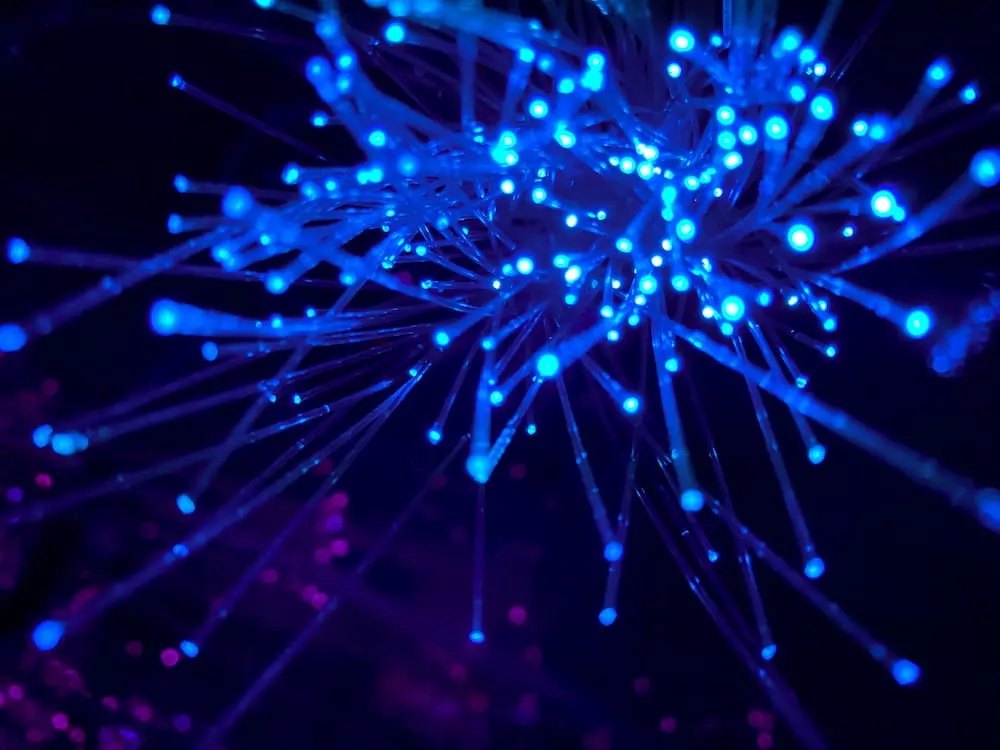
La verdad sobre la Internet de fibra: 6 mitos desmentidos
Optimum knows how important it is for businesses to have a reliable, high-speed Internet connection. Fiber is a well-known option for achieving this connection, but there is so much conflicting information about it out there. And, if you're unfamiliar with the technology, it can be a minefield trying to determine what's true. Here, we'll take you through what fiber Internet is and debunk some common myths about it.

¿Qué es Internet de fibra?
Fiber is a high-speed Internet connection that utilizes fiber optic cables to transmit data. Unlike traditional copper cables, fiber cables are made of thin strands of glass or plastic in a protective casing, and they use light to transfer information. This composition enables faster transmission and more reliable connectivity. They can also transmit over longer distances than traditional wires. As a result, fiber Internet is a popular choice for businesses thanks to its speed, efficiency, and strength. Optimum has several fiber Internet plans available so you can pick the right one for your business’s needs.
Debunking 6 Myths About Fiber Internet
1. Managing a fiber network is harder than traditional cabling
A common myth is that fiber is more complex to look after than traditional copper wires. While installing and managing fiber may require slightly different skills, it is not more difficult to maintain. You can actually detect damage and repair it more efficiently than with traditional wires. This is because fiber uses an Optical Time Domain Reflectometer (OTDR), which is a tool used to measure connection attenuation, monitor transmission, and detect faults. It enables you to accurately locate any damage and mend only the areas in need of repair. And this prevents having to dig up and replace the whole system, which is often the case for copper networks. That's why the upkeep is more straightforward than traditional cables.
2. Fiber optic cables aren’t durable
As these cables have a glass center, you might wonder, "Are fiber optic cables fragile?" In short, no. The way the coating covers the glass actually makes the cables stronger than other wire types. Fiber optic cables are less susceptible to environmental factors, such as extreme temperature fluctuations and high pressure. As fiber cables use light, not electricity, they can even be safely submerged in water and are less prone to fire risk. This also means they're not affected by power or electricity cuts.
3. Fiber optic cables aren't dependable
You may think fiber optic cables are less reliable than traditional copper wires because they seem like a newer, less-used option. But that's not necessarily the case. In fact, there are two myths here to debunk. First, fiber is not that new. It has grown in popularity since the 1970s, and a 2022 Fiber Broadband Association (FBA) study found that over 60 million US households had fiber, up 12% from 2021. The second myth is about Fiber being unreliable. Fiber optic cables actually have several benefits that make them more dependable than their copper counterparts:
- Fiber lines experience less attenuation, or less reduction in signal strength, which means they can more reliably transmit data over further distances.
- Fiber maintains greater bandwidth than traditional copper wires, so your Internet speed will be unaffected by how many people are connected in your office space.
- Fiber-optic lines are more difficult for cyberhackers to penetrate. This is thanks to how fiber Internet transmits data, which occurs through pulses of light. The data moves so fast (at speeds approaching the speed of light), that it's more difficult for hackers to interrupt transmission.
4. Fiber networks aren't much faster than copper networks
Another common myth about fiber is that it's slower than copper networks. In actuality, as fiber uses light rather than electricity to transmit data, it can transmit information much more quickly. Put simply: The speed of light is faster than that of electrons. Plus, copper wires also typically have a lower bandwidth (capacity to transmit signals) than fiber.
5. Fiber networks use a lot of energy and are bad for the environment
Fiber Networks use less energy than traditional copper wire Internet connections as they do not require as much power to transmit data a long way. One reason is that fiber doesn't need intermediate devices, such as amplifiers or air conditioning, to go the same distance as traditional Internet, and this helps reduce energy consumption. Fiber systems have fewer parts, are made of more sustainable materials, and have a smaller carbon footprint, making them a more efficient and environmentally friendly Internet option. Los European Commission has called fiber the most energy-efficient broadband technology. And, by switching to fiber, you can save 1 ton of carbon emissions per year, compared to copper cables.
6. Fiber optic internet is too expensive
Is fiber internet more expensive than traditional copper wires? In short: Not necessarily. While fiber optic cables were traditionally a more pricey Internet option, more recently, many service providers have better aligned the pricing to become more affordable. And there are significant cost savings in the long term. For instance, you save on energy bills as they do not run on electricity. What's more, fiber provides faster speeds and more reliable connectivity for the cost. Fiber can allow your business to enjoy improved productivity and overall experience.
Next, learn more about Optimum’s fiber Internet options, so you can find the right fit for your business.